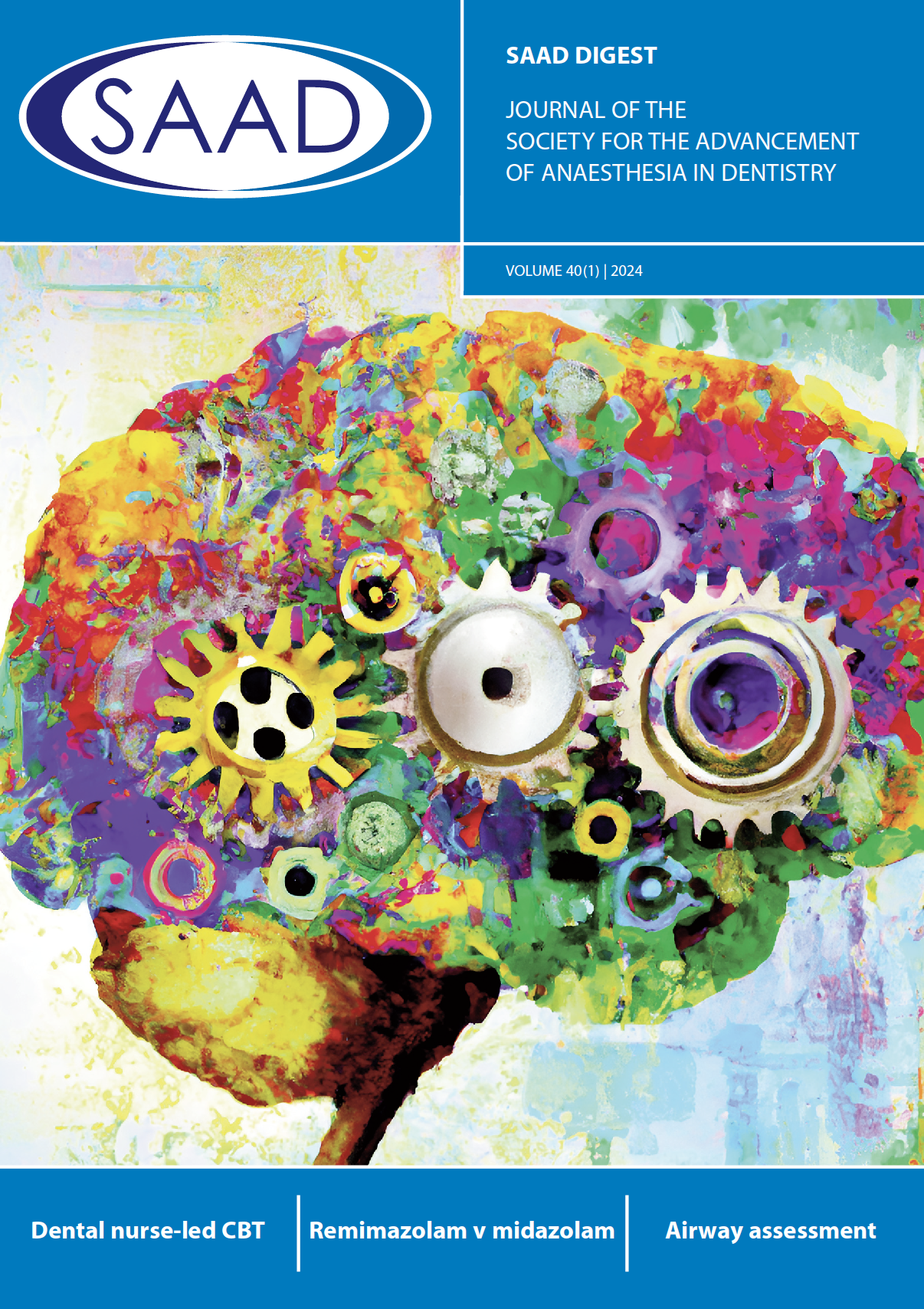
SAAD Digest
March 2024
Volume: 40
Issue: 1
Title: Unsuccessful conscious sedation on patients with a learning disability and / or autism: a multi-site service evaluation
Author(s): J. Li, J. Joseph, X. Yeo, H. Hossenally
Abstract:
Introduction
Dentist-led conscious sedation improves access to dental care for patients with a learning disability (LD) and autism spectrum disorder (ASD). This service evaluation investigated cases of unsuccessful sedation to study the demographic and trend.
Aims
- To evaluate the reasons for failure of intranasal, oral, and intravenous (IV) conscious sedation
- To assess if there is a correlation between patient factors and sedation failure
- To identify if there are ways to improve the success of conscious sedation for patients with LD and ASD.
Methodology
A retrospective review of clinical notes of unsuccessful sedation cases was conducted from January 2019 to July 2021 across two dental services in London. Unsuccessful sedation was defined as ‘planned treatment unable to be carried out in its entirety, not including treatment modifications’.
Results
A total of 452 patients with LD / ASD were included. Unsuccessful sedation was reported in 34 cases (7.5%). All patients lacked capacity and 62% were non-verbal. Reasons for failure included: failure to cannulate (44%); movement (38%); challenging behaviour (9%); inability to maintain satisfactory oxygen saturation (3%); and short sedation window (6%). The mean dose of IV midazolam administered was 8 mg (range 2 - 18 mg).
Conclusion
Multiple patient factors play a role in unsuccessful sedation. Improved and standardised documentation of sedation and operating conditions are needed to facilitate further evaluation.
If you have a query relating to this article please email: digest@saad.org.uk
Articles from Digest 40(1)